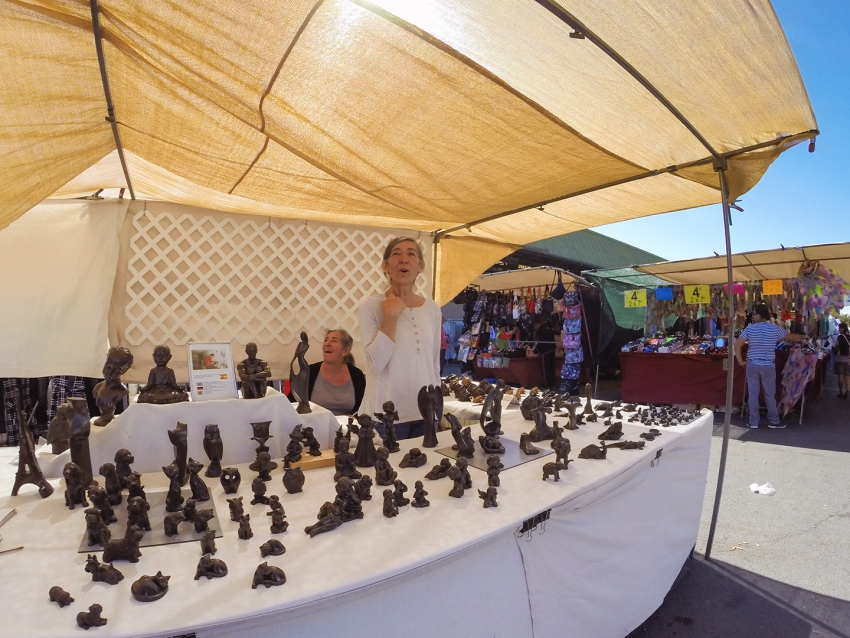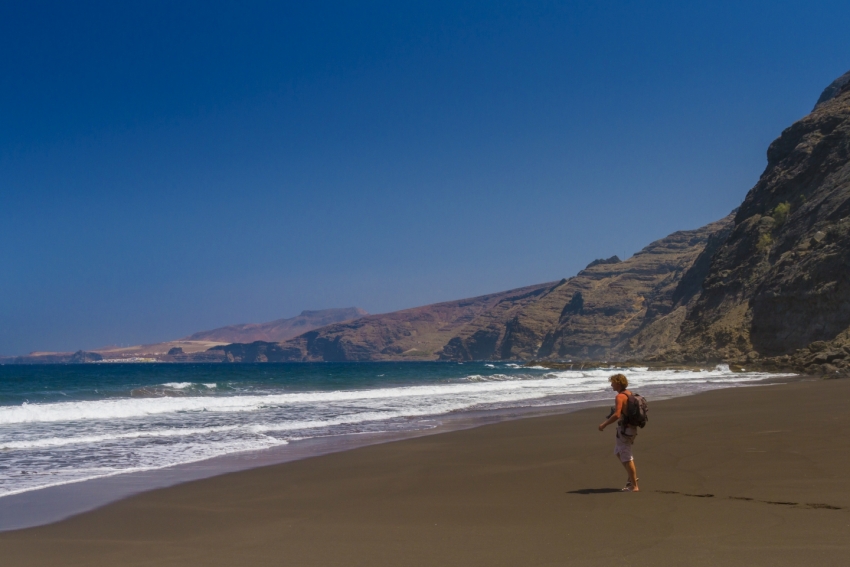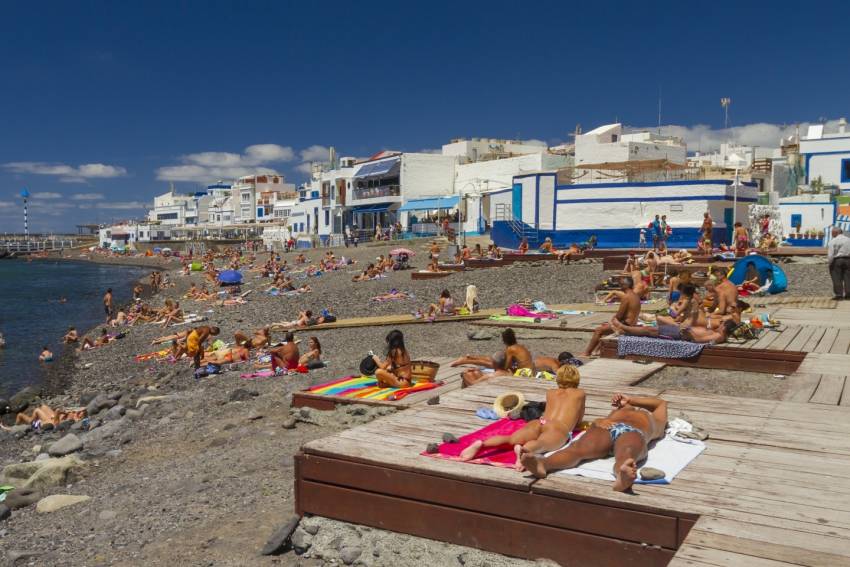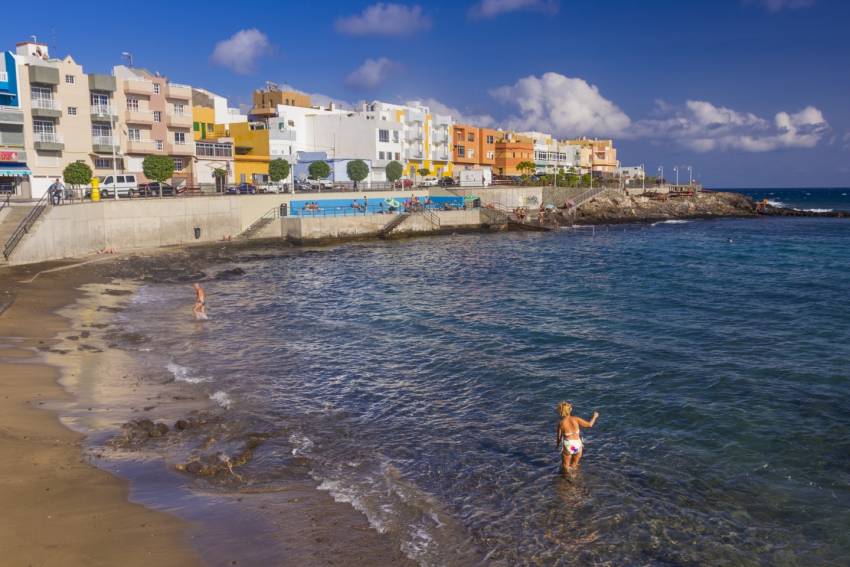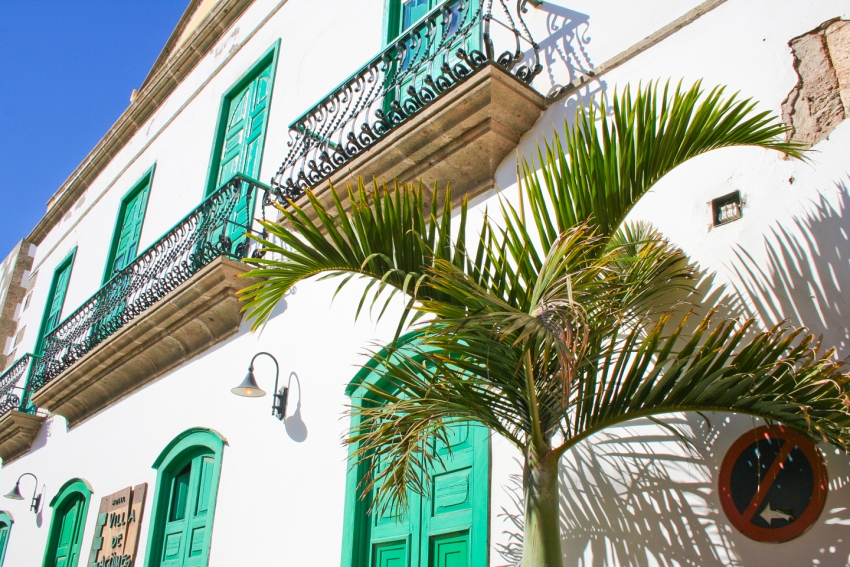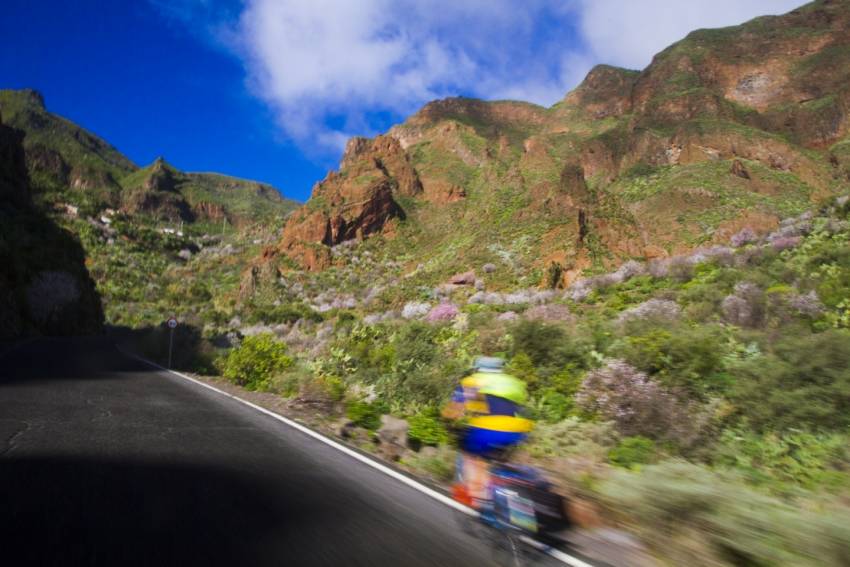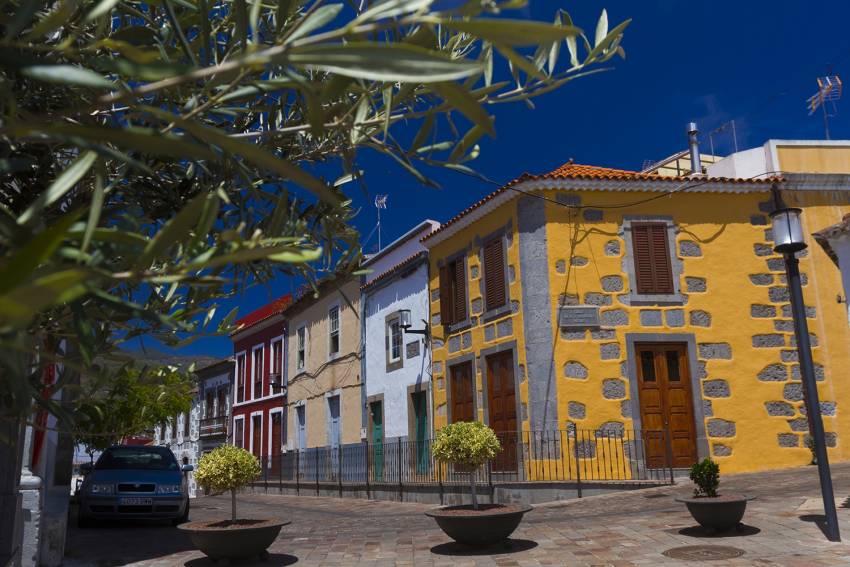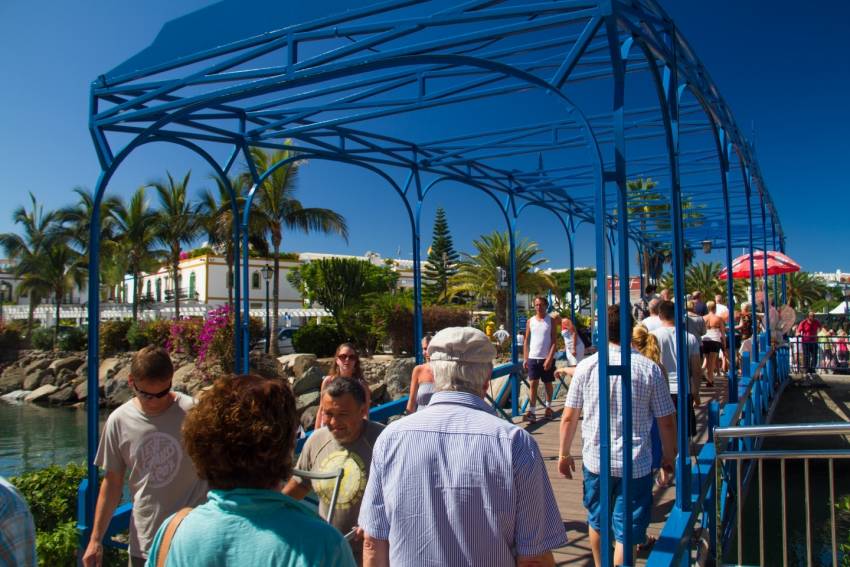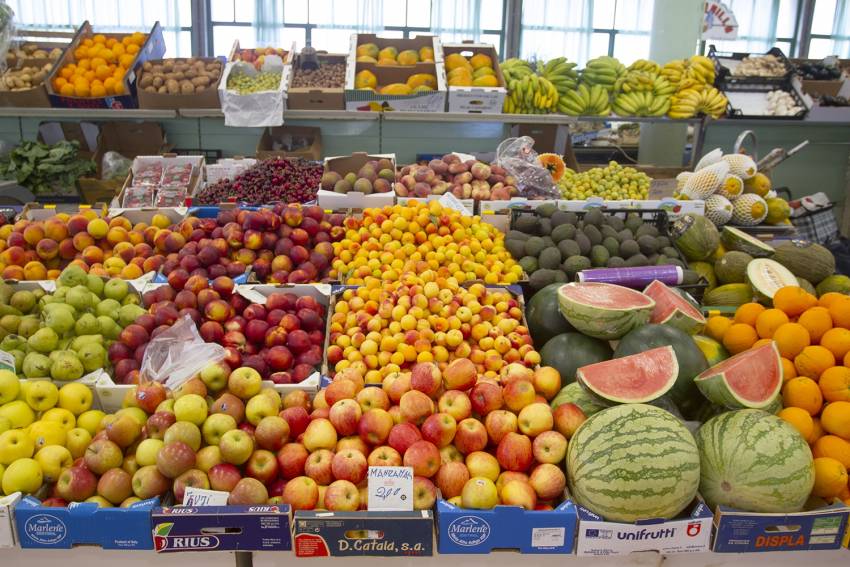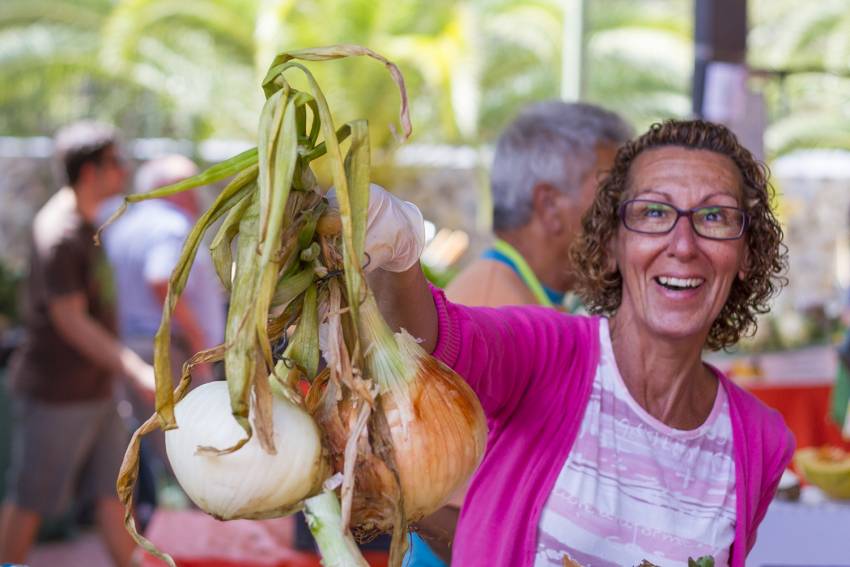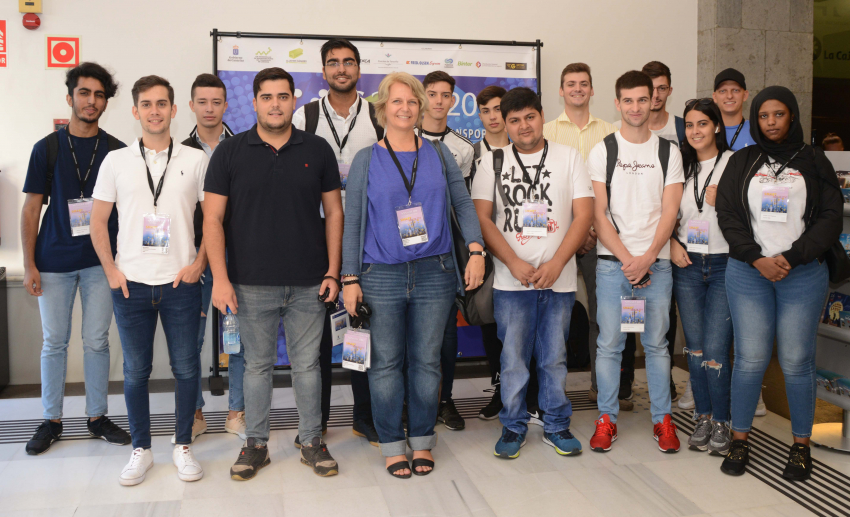Tunte or San Bartolome de Tirajana market is a local affair held in the hill town early every Sunday morning.
San Fernando market is one of the big three in south Gran Canaria along with Puerto Mgán and Arguineguín. The location isn't as pretty as its rivals but it's far more convenient if you're staying in Playa del Inglés or Maspalomas.
The stalls here sell everything from local produce to Moroccan leather (most are also at the other markets).
Faneroque beach makes the more famous GüiGüi beach feel like Puerto Rico on a busy Sunday afternoon. If you make it, and few do, you'll have it all to yourself except for the rusty bulldozer.
Puerto de las Nieves in north-west Gran Canaria is more famous for its seafood than its beach. A shame, as few realise that the area gets some of the best weather on the island and that PDLN beach is a calm, sunny haven with fishing boats on the pebbles rather than sun loungers.
The Canary pine (pinus canariensis) is a miracle tree. Its needles make rain from the clouds and protect the tree from intense forest fires.
When the Trade Winds blow clouds and mist through the Gran Canaria pine forests the mist condenses on the long, droopy needles and falls as rain. This allows the pine forests to grow in areas with little rainfall, provided that they are high enough to get covered in cloud during the winter. The same long needles protect the trees from fires by burning fast before the heat damages the growing buds.
Canary pine grows all over the mountains of Cumbres of Gran Canaria, as well as on Tenerife, La Palma and El Hierro. It can reach 45 metres with a trunk at least 1.5 metres in diameter. The island's pine forests are home to a number of endangered animals and plants, including the Blue Chaffinch.
Gran Canaria's forests are recovering after centuries of over-exploitation and most of the forest you see was planted after the 1960s: Big old pine trees are rare as most were cut down for timber and charcoal.
Canary pine trees have lots of other uses: The seeds are edible, and a needle tea treats colds, coughs and bronchitis. Canary pine oil from the needles makes a powerful rub for arthritis and rheumatism, as well as being antiseptic. Canary pine wood is excellent for making furniture, but is no longer harvested.
The best way to see the Canary pine is to head up to Roque Nublo in the centre of the island. The whole surrounding area is covered with pine forest and there are plenty of walking tracks. Be careful with cigarettes, and never leave glass bottles behind, as the pine forests catch fire easily!
Gran Canaria's sun is African and in the summer it fries pale northern bodies in minutes. If you want a tan, take it easy for the first couple of days until your skin has a chance to adjust.
Arinaga's attractive promenade, a great natural swimming pool and decent seafront restaurants make it an excellent east coast lunch and swim stop. Just up the road is the world-famous El Cabron dive site and the unassuming but ecologically important Arinaga dunes reserve.
The cobbled old town, with its vast church and squat, heat-proof Canarian houses is the prettiest example of a Gran Canaria hill town in east Gran Canaria. It's well worth a wander.
The Guayadeque gorge is easily the most interesting day trip in East Gran Canaria, especially combined with Aguimes old town and an afternoon swim at Arinaga. It's also a pain in the neck for visitors.
You'll get one from looking up at the high cliff walls and cave houses, then from ducking into the cave houses and chapel. Even the restaurant at the end of the road is carved into the rock.
The hum
Sound carries in the gorge and you'll hear dogs barking from their cave kennels and the shrill cry of kestrels as they harry the buzzards overhead. And then you'll notice the hum.
From their hives clustered high up on the valley sides Guayadeque's bees feast on a rolling buffet of flowers. The first course is a feast of pink and white almond blossom in January, followed by yellow broom, purple lavendar and blue bugloss flowers. There's always something in flower here: Guayadeque is one of the most biodiverse spots in Europe, home to dozens of unique Canarian plants.
Try the honey in the cave shops by the chapel half way up the valley.
Cavemen
Guayadeque was a stronghold for the island's original inhabitants. They were the valley's first troglodytes and their traces are everywhere. Visit the interpretation centre at the beginning of the valley road for details on their lives here and the traces they left behind.
Modern day locals still live in cave houses in the valley, although many have turned them into rural houses for visitors. In the old days it wasn't just the people that lived in cavesbut entire farms with everything from cows to rabbits dwelling inside the rocks.
Alex Says: Guayadeque is vertigo-sufferers gateway to the landscapes of central Gran Canaria. You get the monumental cliffs and rocks of the cumbres without steep drop offs.
Here's a growing list of FAQs that we get at Gran Canaria Info. If your question isn't here, then please ask us in an email or via a Facebook message. We'll answer ASAP.
Can I drink the Tap Water in Gran Canaria?
The island's tap water is perfectly safe to drink, wash in, cook with and brush your teeth with. It just doesn't taste too good as it's made from desalinated seawater. Nobody on the island drink the tap water unfiltered and most buy drinking water in five or eight litre bottles.
Are there cockroaches?
There
Can I get marmite, sausages, teabags?
What’s the weather
Which resort
airport transfers
Nightlife
Touts
Gran Canaria Info recommends:
- Default
- Title
- Date
- Random


